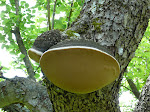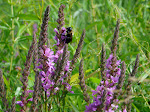
Nervines are plant remedies that have a beneficial effect on the nervous system.
3 categories of nervines:
*Nervine Tonics: ex. oats, eleuthero (often adaptogenic herbs)
*Nervine Relaxants: ex. Skullcap, passionflower, blue vervain
*Nervine Stimulants: ex. Cola nut, guarana, coffee
“WOUNDS ARE THE OPENINGS TO THE SOUL.”
Antidepressant pharmaceutical drugs restrict emotional range and drain vitality. SSRI’s are addictive. They change the structure of your brain by reducing the amount of receptor sites for serotonin. They also decrease serotonin production over time so you end up with less serotonin and fewer receptors. This actually causes more depression in the long run by creating a vicious cycle and unbearable withdrawal symptoms.
By leveling out the emotions, the growth process is stopped. Depression is a message from the soul that you are off track. Something needs to change. David Winston writes, “Over the years I have seen many patients who were helped by conventional treatments only to continue to stay in bad jobs, bad relationships, and unhappy circumstances. They could function better, but were still lacking in joy and contentment.” Of course, temporary use of pharmaceuticals has saved many lives, however, we were never meant to stay on them for long periods of time.
Our gut is our second brain. It has a neural lining; every neurotransmitter in our brain is also found in our gut! And in fact, digestive health is essential for emotional and hormonal stability. Serotonin is also produced in the gut.
_________________________________________________
The Autonomic Nervous System is divided into 2 parts: sympathetic and parasympathetic.
The sympathetic prepares us for the fight or flight response. It helps us to sense danger by sending a message to the adrenal cortex, which produces adrenaline type hormones (and cortisol, and noradrenalin…) which increases muscular and cardiac functions, decreases saliva, decreases digestive functions, draws blood into the muscles, sweat gland secretions, quickens heart beat and breathing, dilates pupils (to improve eyesight)….. We’ve all heard the saying “I was so scared that I almost crapped my pants.” This is the sympathetic nervous system doing it’s job.
The parasympathetic state is associated with a deep feeling of relaxation: slow breathing, slow heart rate, relaxed muscles, and good digestion.
The sympathetic nervous state is related to being on guard and not feeling safe, and waiting for the other shoe to drop. When we stay in the sympathetic state for too long a period, it exhausts our endocrine and nervous systems. Symptoms are chronic stress, fatigue, anxiety, weight gain (too much cortisol in the blood stream), frazzled nerves, weakness, unclear thinking, insomnia….etc.
Most of us are living predominantly in the sympathetic nervous state and have difficulty re-establishing the all too forgotten and essential parasympathetic condition. Quite simply, we have forgotten how to relax.
This is where herbs, yoga, pranayama, and meditation play a vital and important role.
_________________________________________________
ANXIETY
As we reside in a sympathetic state, nervous anxiety and overstimulation tend to build up with no outlet for the adrenaline and hormones we’ve accumulated. Most anxiety is due to over-active lifestyles and frantic behavior like rushing around, thinking too fast, and not going at our resonant pace. That pace becomes a habit. Slow down. Breathe. Check for hyperthyroidism.
*Coffee increases stress hormones by up to 200%! This depletes our adrenal glands and energy reserves, creating a dependency on stimulants to stay "energized", while leaving us in a chronic state of stress. (An occasional cup of coffee can lift up the spirits.) J
The solution? Channel that anxious energy...Exercise! Get into your body! Anxiety calls for herbs that restore and relax both the Central and Sympathetic nervous systems, so you’ll want to work with tonics and relaxants like skullcap, oats, and eleuthero, (and shavasana, creative visualization…) Caffeine and chocolate exacerbate the problem. Stay away from stimulants completely for a while.
Calming herbs for anxiety and insomnia include: oats, chamomile, blue vervain, skullcap, passionflower, hawthorn, motherwort, hops, and kava.
Hyperactive, stressed out, type A people: try milky oats with an adaptogen for 6 months.
DEPRESSION
This is a big subject since there are so many causes:
Hormonal depression
Bilious depression
Situational (or stagnant) depression
Depression can also arise from gut dysbiosis, nutritional deficiencies, hypothyroidism, being in an environment that zaps your life force, heavy metals, stagnant liver, trauma, candida overgrowth (bacteria release neuro-toxins that interfere with neurotransmitters), low omega 3 levels, medications, sugar, not enough sunligt, heart/mind imbalances…
It has been my observation that dis-ease occurs as a result of living out of allignment with your soul, and living out of balance with nature. These are the 2 big no-no's that eventually catch up with everyone. Unfortunately, we're all dealing with the effects of disharmony in both of these areas on a global scale.
Herbs for hormonal depression: Dandelion, vitex, black cohosh, pulsatilla, night blooming cerus (cactus-used for depression with excessive fear).
Herbs for hepatic depression: st. john’s wort, rosemary, lavender, evening primrose leaf, rootbark, or flower—not the oil.
Herbs for situational depression: lemon balm, rose, holy basil, hawthorn, rhodiola, lavender…
For depression, it’s a good idea to use adaptogens or nervine tonics (restoratives) in addition to using relaxing nervines to help strengthen the overall life force: American ginseng, red ginseng, ashwagandha, cordyceps, reishi, schisandra, eleuthero…
NERVINES-
American Ginseng- restorative, has a tonic effect on the nervous system when fatigue is the predominant issue. Feeds adrenals, boosts immunity, combats chronic fatigue.
Ashwagandha- adaptogenic, tonic, calming, reduces stress, boosts energy and libido, promotes restful sleep.
Black Cohosh- for doom and gloom depression. Hormonal depression
Blue Vervain- hormonal anxiety, nervous tics, stiff neck
Catnip- for people that tend to internalize stress in the stomach. For digestive upset caused by nervous tension.
Celery Seed- calms and “reboots”
Chamomile- for “babies of any age”, whiners, nightmares, morning sickness, digestive upset, impatient people who want attention.
Codonopsis- tonifies entire endocrine system and strengthens digestion
Cordyceps- calms nervousness, reduces fatigue, restores kidney “jing”
Damiana- depression with loss of libido. Calming
Eleuthero- regulating, normalizes stress hormones
Hawthorn- calms and nourishes the heart, calms palpitations, restores shen
Holy Basil- calms, strengthens, and uplifts. Sean mentions “it aromatically helps to clear out depression”.
Hops- sedative for nervousness, anxiety, relaxes the tissues, (too much beer leads to beer gut-tissues are too relaxed!) digestive bitter, muscle spasms.
Kava- very strong. For intense anxiety, stage fright. Inability to cope; tooth pain, pain from cystitis, muscle relaxant, insomnia. Use temporarily.
Lavender- uplifting, for mild anxiety, improves sleep quality. For stagnant depression, try lavender, holy basil, and damiana. –David Winston
Lemon Balm- calming and uplifting. For mild depression and SAD (with St. John’s wort, vit. D, and fish oils) elevates mood. For hyperthyroid types.
Linden Blossom- mild hypertension and heart palpitations (with motherwort and hawthorn)
Motherwort- hormonal/menopausal anxiety. Bossy mothers. Chronic anxiety with racing heart. Nice formula: blue vervain, oats, pulsatilla, motherwort.
Mullein root and leaf- protects myelin sheath- holds moisture around the nerve endings. Use with St. John’s Wort.
Milky Oats- strengthens and nourishes. Soothes frayed nerves. For those burning the candle at both ends. Chronic stress. This is a slow acting remedy, but unbeatable.
Passionflower- sedative for anxiety and insomnia. For busy minds, facial tics, circular thinking. Painkiller in large doses. For grinding teeth with skullcap.
Prickly Ash- for depleted nerves. Stimulates nervous system, circulation, and disperses herbs.
Reishi- restores heart-mind connection (shen), tonic, adaptogen, balances cholesterol, longevity tonic. Promotes peaceful demeanor.
Rhodiola- powerful antidepressant. Restores inner reserves. Cures fatigue from heartache (loss of a loved one).
Rose Petals- use in elixir form. Gladdens the heart. Restores relaxed breathing. Promotes self love and awareness.
Rosemary- works well in combination with other nervines, especially when there is slow circulation. Good for brain fog and liver headaches.
St. John’s Wort- anti-depressant and anti-anxiety. Amphoteric. For nerve pain and damage, sciatica, shingles, “It opens the emotional windows and lets the sunlight in”.
Schizandra- nervous system balancer, harmonizes other herbs
Valerian- sedative, makes you sleepy
Wild Lettuce- for nervousness and insomnia, for people that run cold.
Wood Betony- draws energy downward from the head, grounding, reduces stress headaches, calms digestion, used in fibromyalgia formulas. Balances left and right hemispheres of the brain.
*All information posted in this article is for educational purposes only and is not intended to diagnose or cure disease.











No comments:
Post a Comment